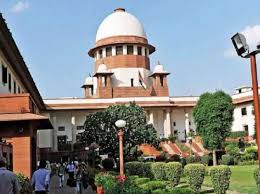Four persons namely Manja alias Amit Mishra, Jitendra Kumar Mishra @ Jittu, Gledwin alias Banti Isai and Ajay alias Ajayya were convicted to life imprisonment under Section 302 r/w 34 IPC with a fine (Para 2)
The incident is of 08.06.2007 which probably took place around 08.45 pm in the night, in front of Machchu Hotel which is located near Shukla Hotel within the jurisdiction of Police Station Ghamapur, Jabalpur. In the said incident, one Pappu alias Rajendra Yadav had died. It is alleged that when he along with his friends Virendra Verma and Amit Jha was coming out of the Machchu Hotel, he was beaten and assaulted by all the four accused with knife and other weapons such as sickle and kesia. (Para 5)
It has come in evidence that Rahul Yadav (PW-13) is a relative of the deceased Pappu Yadav and as such he is not a free and independent witness. He is likely to be an interested witness. The evidence reveals that he is a person with criminal background. He is involved in one of the cases registered under Section 324 and 326 IPC. He has been chargesheeted under Section 3/5 of the Explosive Substance Act. He has avoided the process of the Court and had been absconding for almost 7 months. (Para 10)
The above witness was not found at the place of occurrence by the brother and mother of the deceased when they reached the place of occurrence immediately after the alleged incident had taken place or at the time when the deceased was lying on the road. They have not mentioned about his presence though he ought to have been there as he had tried to save the deceased. Even the deceased has not mentioned in his alleged dying declaration or the statement given to his brother and mother that someone tried to save him or that the above witness Rahul Yadav (PW-13) had come to his rescue but was made to run away. Additionally, even the FIR does not mention the presence of PW-13. All these factors cast a serious doubt as to presence of PW-13 and the conviction cannot be based on his testimony alone. (Para 12)
The FIR specifically mentioned that the incident was witnessed by Virendra and Amit Jha, the friends of the deceased who were with him at the time of incident. Both these two persons have not supported the prosecution case. (Para 13)
The brother of the deceased Rajkumar Yadav is a lawyer by profession. The brother and the mother of the deceased had rushed to the spot only after receiving information of the incident from PW-1 who after seeing the accused persons assaulting the deceased had gone to their house to inform of the incident. All this, obviously, could have consumed 15-25 minutes which means that by the time they reached the place of occurrence, the deceased could not have survived so as to make any declaration. There is no specific material piece of evidence to establish that the deceased was alive or in a position to speak when his brother & mother reached the spot. In these circumstances, the dying declaration cannot be ex facie accepted to be correct unless it stands corroborated by any other cogent evidence. There is no material to corroborate the said dying declaration. (Para 16)
We are conscious of the fact that the appellate court should be slow in interfering with the conviction recorded by the courts below but where the evidence on record indicates the prosecution has failed to prove the guilt of the accused beyond reasonable doubt and that a plausible view, different from the one expressed by the courts below can be taken, the appellate court should not shy away in giving the benefit of doubt to the accused persons. (Para 17)
In the overall facts and circumstances of the case, we are of the opinion that the courts below ought to have extended the benefit of doubt to the appellants. Accordingly, we are of the opinion that the conviction and sentence of the appellants are liable to be set aside and are hereby set aside by granting the benefit of doubt. They stand acquitted and are set free.
SUPREME COURT OF INDIA
2024 STPL(Web) 20 SC
[2024 INSC 20]
Jitendra Kumar Mishra @ Jittu Vs. State Of Madhya Pradesh
Criminal Appeal No.1348 OF 2011With Criminal Appeal No. 1347 OF 2011-Decided on 05-01-2024.
https://stpllaw.in/wp-content/uploads/2024/01/2024-STPLWeb-20-SC.pdf







